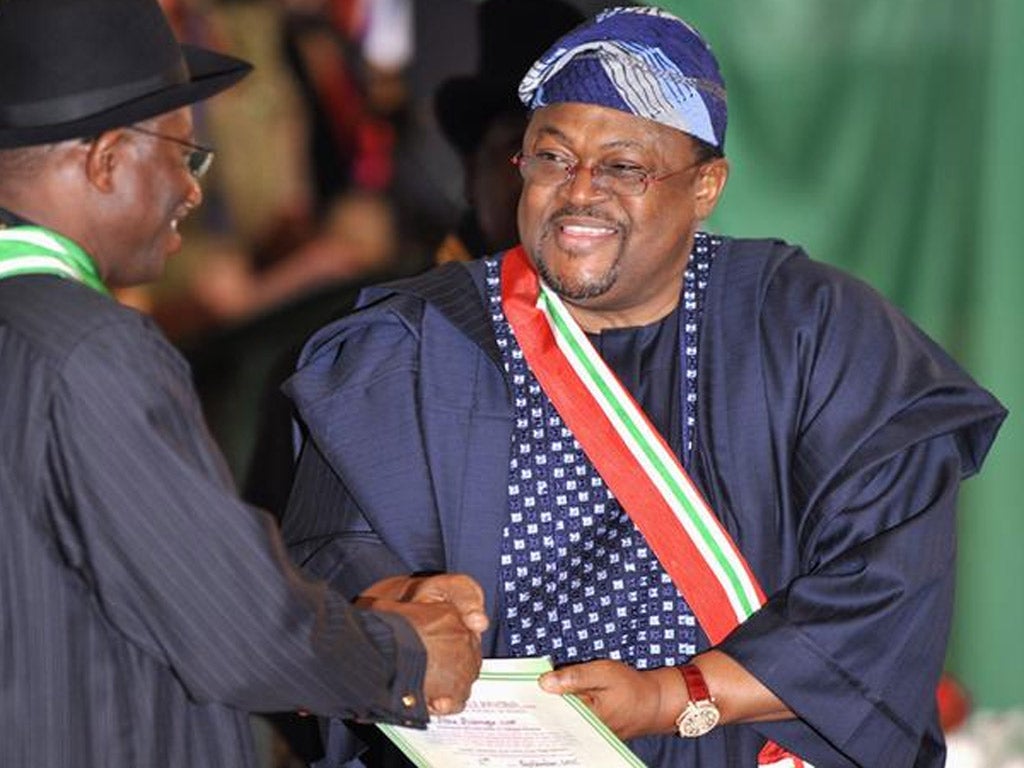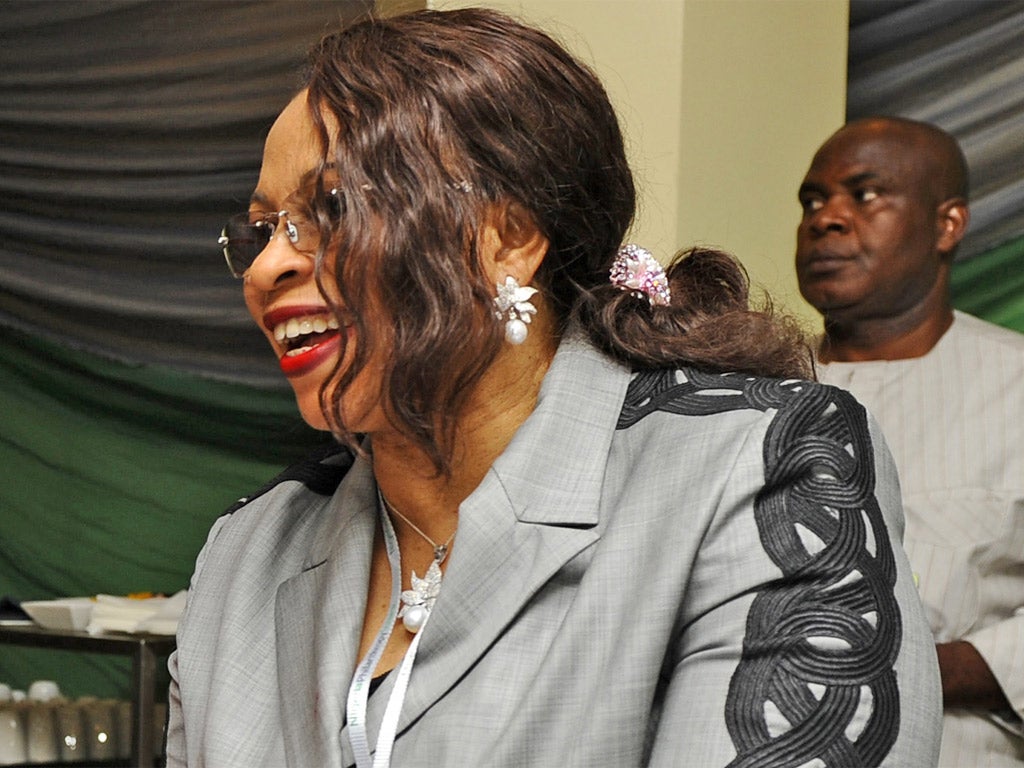Africa rises: Continent triples its number of billionaires
Oil fuels the fortune for many as the gap between rich and poor grows

Your support helps us to tell the story
From reproductive rights to climate change to Big Tech, The Independent is on the ground when the story is developing. Whether it's investigating the financials of Elon Musk's pro-Trump PAC or producing our latest documentary, 'The A Word', which shines a light on the American women fighting for reproductive rights, we know how important it is to parse out the facts from the messaging.
At such a critical moment in US history, we need reporters on the ground. Your donation allows us to keep sending journalists to speak to both sides of the story.
The Independent is trusted by Americans across the entire political spectrum. And unlike many other quality news outlets, we choose not to lock Americans out of our reporting and analysis with paywalls. We believe quality journalism should be available to everyone, paid for by those who can afford it.
Your support makes all the difference.On the one hand, Africa is the continent of endemic violence and relentless poverty, the blighted continent which talented young people will do anything to escape: witness the more than 200 who died last week trying to reach the coast of Lampedusa. On the other hand, the number of African billionaires has tripled since the last research was published.
The wealthiest African, according to Ventures, the Nigerian business magazine which published the list, is Aliko Dangote, himself Nigerian. He is said to be worth $20.2bn, 68 per cent more than was previously believed. He made his money from cement but has diversified into flour and sugar production.
Africa’s richest woman is the flamboyant Nigerian fashion designer Folorunsho Alakija, who studied fashion in London then went on to make dresses for Maryam Babaginda, the late wife of Nigerian military dictator Ibrahim Babaginda. But her fashion is only indirectly her fortune, according to Ventures. She “is believed to have ridden on the crest of this relationship [with Maryam Babaginda] to acquire an oil block…at a relatively inexpensive price,” the magazine reports.
Oil remains the surest route to an African billion: one of the youngest men on the list at 38 is a Nigerian oil trader, Igho Sanomi, while several others on the list are Nigerian oil barons. But a sign that sub-Saharan Africans are finding other routes to success is the inclusion of another 38-year-old, Tanzanian Mohammed Dewji, a rising politician, whose family’s small trading company has expanded into everything from agriculture to mobile communications to construction.
Chi-Chi Okonjo, the founder of Ventures, believes there are more Africans of serious wealth out there who he has failed to identify. “People are not comfortable disclosing their wealth,” he says. Given the levels of corruption in many African countries, there may be good reason to keep their success quiet.
The notion that Africa is at last beginning to fulfil its economic potential is reinforced by new World Bank research which forecasts economic growth in sub-Saharan Africa to average 4.9 per cent this year, with almost a third of countries in the region growing at 6 per cent or more. “African countries are now routinely among the fastest-growing countries in the world,” reports the Bank’s twice-yearly publication, Africa Pulse, which predicts growth will strengthen to 5.3 per cent in 2014 and 5.4 per cent in 2015.

The main sources of growth are private investment and remittances from abroad, with tourism bulking increasingly large as well.
The combined wealth of the 52 men and three women on Mr Okonjo’s list is $143.88bn – more than the fortunes of Bill Gates and Warren Buffett put together. But Mr Okonjo points out that some of them are giving lots of it away. Mr Dongote, for example, “donated more than $100m last year to education, health and disaster relief in Nigeria,” he blogged for the Financial Times.
“Similarly, Nigerian banking billionaire Jom Ovia, worth $1.5bn, gave $6.3m last year through his foundation to support ICT skills training, and Zimbabwean telecoms mogul Strive Massiyiwa and his wife Tsitsi, worth $1.46bn, pay the school fees of almost 14,000 students.”

Yet as the billionaires multiply, so do the Africans languishing in desperate poverty. As in India, which enjoyed rapid growth over the past ten years, the rich get richer and the poor get poorer. Poverty and inequality, points out Africa Pulse, remain “unacceptably high and the pace of reduction unacceptably low.” Almost one in two Africans today lives in extreme poverty.
Africa’s billionaires
1. Aliko Dangote (Nigeria)
Estimated worth: £12.5bn Age: 56
Africa’s richest man is the owner of the Dangote Group. The largest manufacturing conglomerate in West Africa, the group operates sugar refineries, salt processing facilities, a beverage manufacturer and a string of cement plants.
2. Allan Gray (South Africa)
Estimated worth: £5.3bn Age: 75
Mr Gray controls two investment companies that collectively manage over $50bn in assets.
3. Mike Adenuga (Nigeria)
Estimated worth: £5bn Age: 60
Nigeria’s second richest man made his first fortune in his mid-twenties by distributing lace fabrics and Coca-Cola, and by handling lucrative government contracts.
4. Folorunsho Alakija (Nigeria)
Estimated worth: £4.5bn Age: 62
Africa’s richest woman heads Nigerian oil company Famfa Oil.
Join our commenting forum
Join thought-provoking conversations, follow other Independent readers and see their replies
Comments